Material
Aluminum
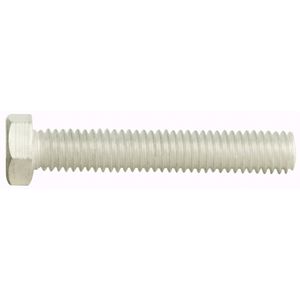 Aluminum fasteners are a light weight alternative to steel fasteners. Aluminum is soft, non-magnetic, and corrosion resistant. These fasteners offer good electrical and thermal conductivity, and a good strength-to-weight ratio.
Aluminum fasteners are a light weight alternative to steel fasteners. Aluminum is soft, non-magnetic, and corrosion resistant. These fasteners offer good electrical and thermal conductivity, and a good strength-to-weight ratio.
Brass
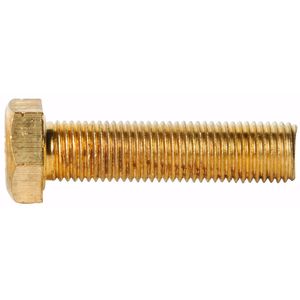 Brass is a soft, non-magnetic fastener material that offers corrosion resistance, heat and electrical conductivity, and cosmetic appeal. Brass fasteners may be found in electronics, plumbing, and marine applications.
Brass is a soft, non-magnetic fastener material that offers corrosion resistance, heat and electrical conductivity, and cosmetic appeal. Brass fasteners may be found in electronics, plumbing, and marine applications.
Monel
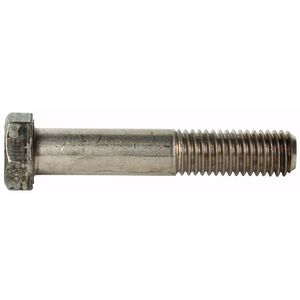 This 2/3 nickel and 1/3 copper material is an alloy developed by the Special Metals Corporation. It has very good strength and is similar in strength to medium carbon steel, however, due to its strength it has poor machining properties. Its composition also provides it with excellent corrosion resistance in specific highly corrosive environments of sea water, hydrofluoric acid, sulfuric acid, alkalines. With the ability to retain its strength at very high and low temperatures it is one of the best materials to resist extreme elemental conditions. Applications include marine fasteners and chemical processing.
This 2/3 nickel and 1/3 copper material is an alloy developed by the Special Metals Corporation. It has very good strength and is similar in strength to medium carbon steel, however, due to its strength it has poor machining properties. Its composition also provides it with excellent corrosion resistance in specific highly corrosive environments of sea water, hydrofluoric acid, sulfuric acid, alkalines. With the ability to retain its strength at very high and low temperatures it is one of the best materials to resist extreme elemental conditions. Applications include marine fasteners and chemical processing.
Nylon
Silicon Bronze
Stainless Steel
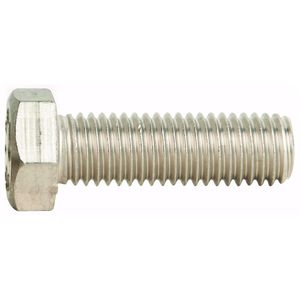 Stainless steel is steel combined with alloying elements, principally chromium, to enhance corrosion resistance and impart other desired properties depending upon the alloying elements in use and their proportions. Many stainless steel fasteners are non-magnetic or less magnetic than regular steel fasteners.
Stainless steel is steel combined with alloying elements, principally chromium, to enhance corrosion resistance and impart other desired properties depending upon the alloying elements in use and their proportions. Many stainless steel fasteners are non-magnetic or less magnetic than regular steel fasteners.
Steel
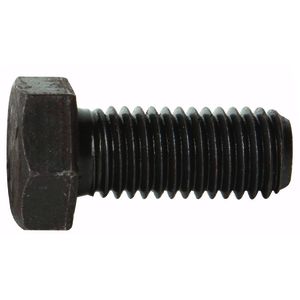 Steel is the most common fastener material due to its strength properties. Unalloyed steel may be surface treated to enhance corrosion resistance and other desirable properties.
Steel is the most common fastener material due to its strength properties. Unalloyed steel may be surface treated to enhance corrosion resistance and other desirable properties.
